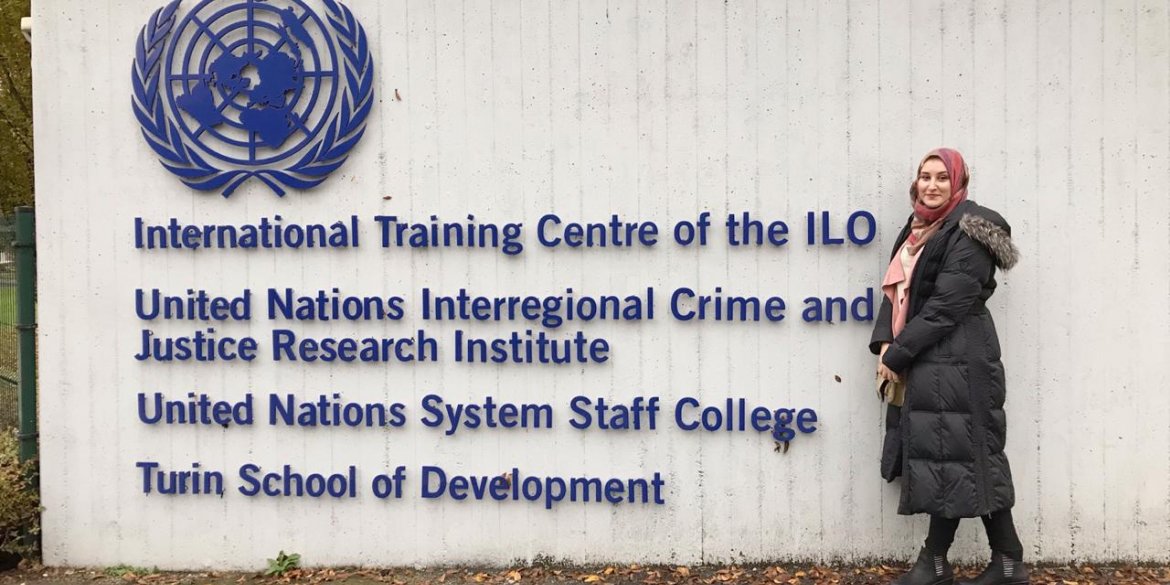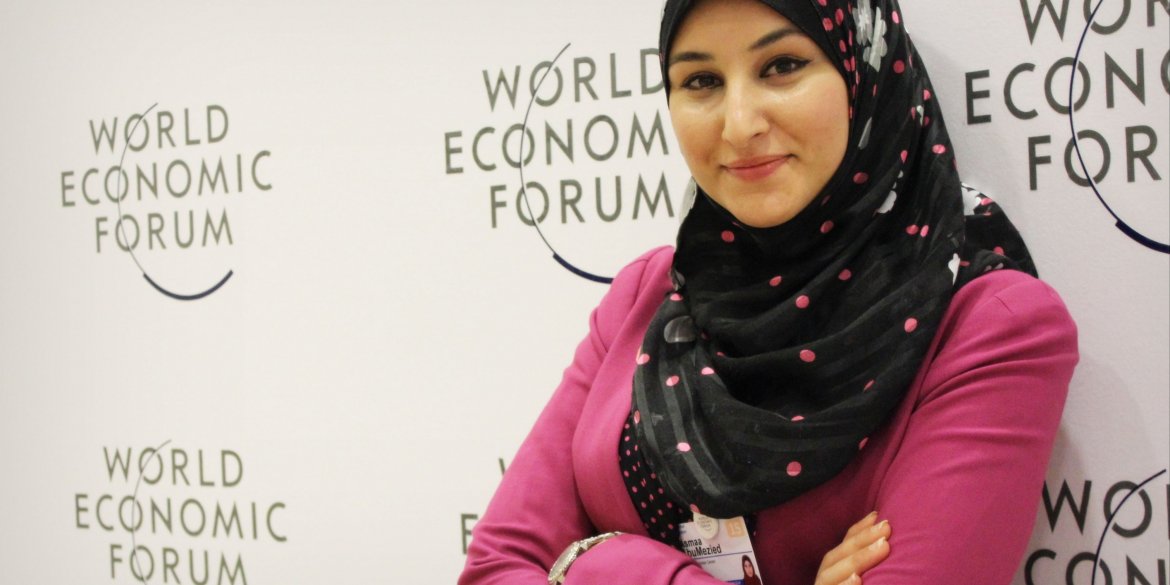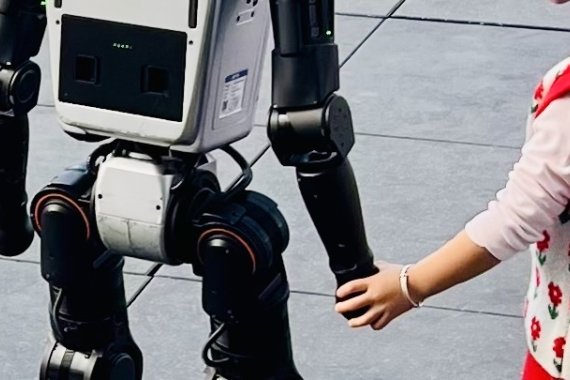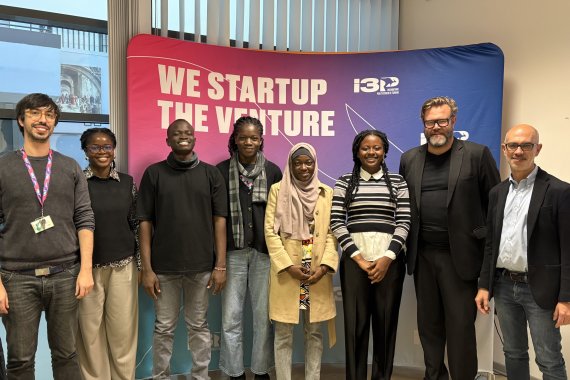The Forward Female
The Forward Female
The quest for change with Asmaa AbuMezied, a recent Gender Academy participant and women’s empowerment advocate from Palestine
6 Gennaio 2020

A few weeks after the end of the Gender Academy, I had the pleasure of connecting with Asmaa AbuMezied to discuss the impact she’s making at Oxfam in the Gaza Strip. At such a young age, Asmaa’s vision and drive are an absolute inspiration.
Learning Journeys
Asmaa came to the International Training Centre of the ILO with a clear purpose and passion to foster positive change back in Palestine. The Gender Academy she participated in was a two-week global forum, in which participants learned from high-level international experts, discussed and shared experiences with practitioners, and tested practical approaches and innovative methodologies.
A key issue particularly intrigued Asmaa: the care economy. Back in the Gaza Strip, Asmaa conducted a rapid care assessment to analyse how unpaid care interacts with female economic empowerment. “The women we interviewed talked about the connection between unpaid care work and climate, unpaid care work and conflict areas during wartime, etc.," she explains. “I wanted to see how I can go further beyond that analysis,” she questions, “What do we do with the results?”
The Academy’s structure left a lasting impression on Asmaa:
There wasn’t only one mode of information sharing, but instead plenary sessions and deep dive learning journeys on specific topics. It was something I hadn’t seen before and it’s a better way to interact than just listening.
The exchange among participants and varied methodologies were of utmost value to Asmaa and her work.
Investigating Inequality
Working as the Women's Economic Empowerment Coordinator in Oxfam’s Economic Justice Program, Asmaa investigates systemic ways of addressing gender inequalities in Palestine. Although the current situation is volatile and conflict-ridden, she sees this as an opportunity for change.
How can we mainstream gender and gender integration in the value chain? How can we analyse where female concentrations are at each stage in the value chain?
“In a market-system approach, addressing gender is something that has been criticized,” she shares. Nevertheless, “there is a rise of more people talking about gender in the market system.” She is at the forefront of collaboratively confronting this issue.
This thirst for fueling long-lasting impact is nothing new for Asmaa. Back in 2016, Asmaa also participated in the World Economic Forum’s Global Shapers initiative in Davos, Switzerland. Amongst meetings with Canadian Prime Minister Justin Trudeau, Melinda Gates, and Nobel Peace Prize winner Muhammad Yunus, she led a session about the importance of linking short-term humanitarian work with long-term development projects.

“This is something I’ve learned from living in Gaza because no matter how much aid, cash for work, and food parcels/vouchers are sent; unless it is linked with long-term development, then it is unsustainable and you are just creating a population that is aid-dependent,” she elaborates.
We want to try and influence the aid industry.
She offered a sustainable solution to the issue by investing in locally-manufactured producers instead of importing foreign products. Then, “those working in development can work on improving the quality for the local producers and local processors,” she concludes.
Here and There
Asmaa’s experience in Davos is just scratching the surface of her time abroad. Her father greatly encourages his daughters to pursue education near and far. In addition to having studied at the London School of Economics, she lived a year and a half in Washington, D.C. during the recent United States election.
This was a time of great growth and reflection for Asmaa. There was a growing amount of spaces to talk about social issues, minority rights, and how systems of oppression work in different ways.
I used to live in an apartment with a group of ladies from Sudan, Pakistan, and Azerbaijan. Imagine our dinner conversations.
She also began reflecting on the idea of privilege. “When I travel abroad, I used to be on the other side of privilege: the one who receives oppression,” she opens up, “But then, when I come back to Gaza I am considered privileged.” Learning to navigate this space is a constant, eternal struggle for her.
These contrasting identities continue to live on within her. What triggered her interest in women's empowerment? “It’s going to sound funny, but thinking about gender equality was not something that I grew up with, because of this overarching injustice,” she answers.
Sometimes ignorance is a blessing.
Although she is grateful for her abroad experiences, the exposure to external concerns can be frustrating. “Once you become aware and see systemic issues or injustices, you want to change it,” she states. Her reflections continue: “However, then you realize you are only an individual and no matter how much you try and fight against such injustices, your efforts are very small to influence the overall image.”
Digging Deep
Outside of work, Asmaa doesn’t stop in her quest for positive impact. She is an avid gardener, learning daily from the patience, physical energy, and strength required to work with the land. A truly eye-opening experience for her.
In addition to rekindling her connection with nature, she is an active volunteer. With a group of young people she hosts movie screenings about social issues to foster dialogue about poverty, the environment, and more. She is also currently spending time with a group of high schoolers to facilitate discussions about mental health and climate change.
Whether at work, in the field, or in the classroom, she is on a constant search for justice.
Luxurious Hope
Daily life in a conflict area can be overwhelming. Asmaa touched upon this mental burden: “Will I even have a future tomorrow? Having a five-year plan is not something that we can mentally afford to think about.”
People have reached the point where hope is a luxury that they cannot afford anymore.
And yet, on this blank canvas of uncertainty she stays driven: “I really wish that the work we are doing with the women in Gaza is impactful for them. Maybe we can have a feminist movement that looks at the different struggles we have and try to push for change.”
There are most certainly lessons to be learned from this captivating young professional. Wishing her a safe and successful career!

